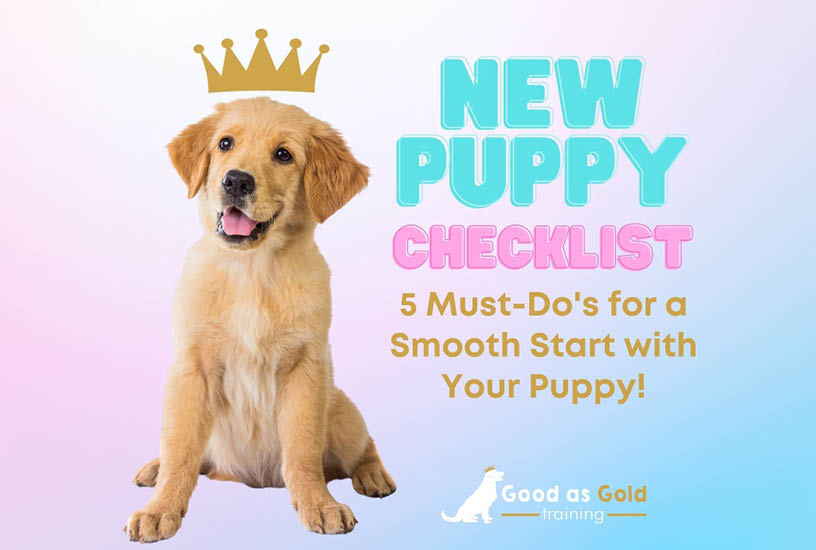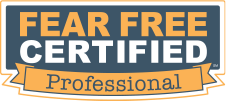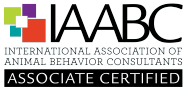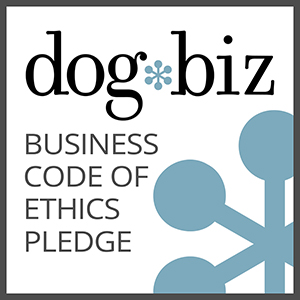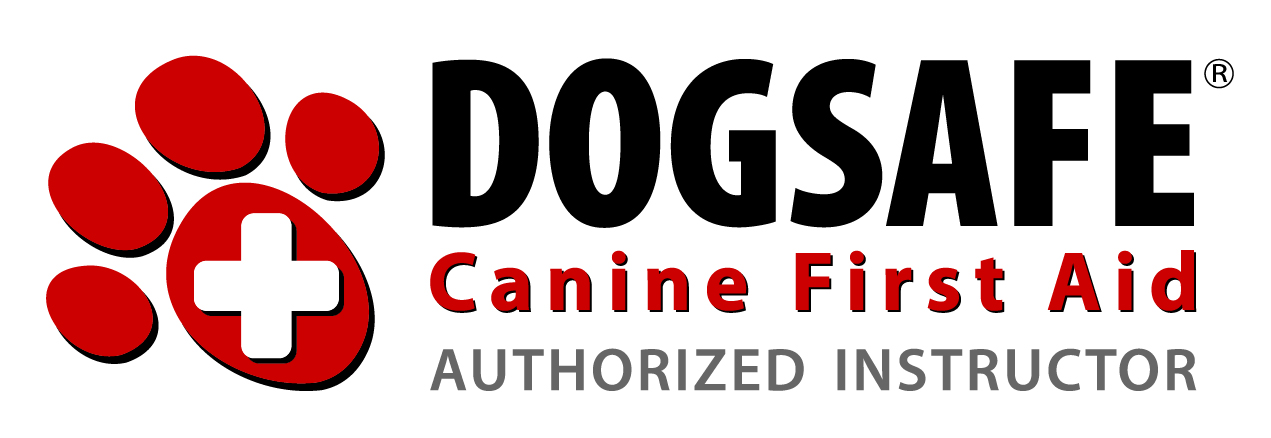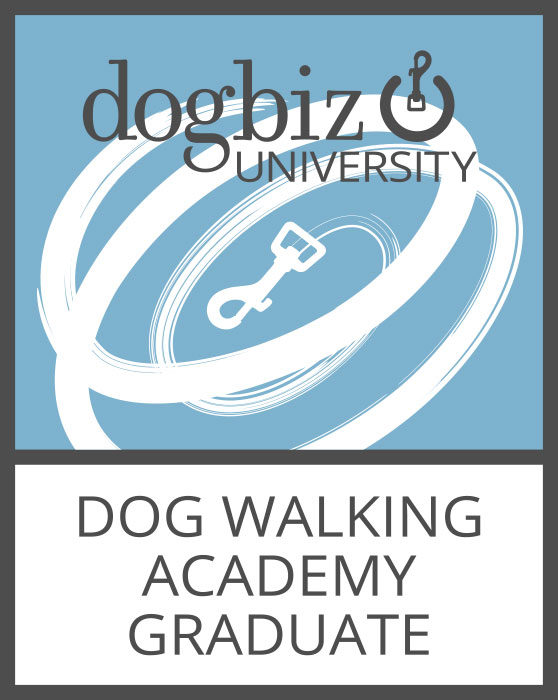![]() So you got a new puppy – YAY! – now what? Here are the 𝐟𝐢𝐫𝐬𝐭 𝟓 𝐭𝐡𝐢𝐧𝐠𝐬 we recommend you should do right away to start your puppy off on the right paw:
So you got a new puppy – YAY! – now what? Here are the 𝐟𝐢𝐫𝐬𝐭 𝟓 𝐭𝐡𝐢𝐧𝐠𝐬 we recommend you should do right away to start your puppy off on the right paw:
![]() 𝐂𝐫𝐞𝐚𝐭𝐞 𝐚 𝐡𝐨𝐮𝐬𝐞𝐡𝐨𝐥𝐝 𝐫𝐨𝐮𝐭𝐢𝐧𝐞 𝐚𝐧𝐝 𝐚𝐥𝐥𝐨𝐰 𝐲𝐨𝐮𝐫 𝐩𝐮𝐩𝐩𝐲 𝐭𝐨 𝐬𝐞𝐭𝐭𝐥𝐞 𝐢𝐧𝐭𝐨 𝐭𝐡𝐞 𝐡𝐨𝐮𝐬𝐞: Puppies thrive on consistency, so establishing a schedule early on for meals, potty breaks, and playtime will help them feel comfortable and bring some stability to your new life with a puppy.
𝐂𝐫𝐞𝐚𝐭𝐞 𝐚 𝐡𝐨𝐮𝐬𝐞𝐡𝐨𝐥𝐝 𝐫𝐨𝐮𝐭𝐢𝐧𝐞 𝐚𝐧𝐝 𝐚𝐥𝐥𝐨𝐰 𝐲𝐨𝐮𝐫 𝐩𝐮𝐩𝐩𝐲 𝐭𝐨 𝐬𝐞𝐭𝐭𝐥𝐞 𝐢𝐧𝐭𝐨 𝐭𝐡𝐞 𝐡𝐨𝐮𝐬𝐞: Puppies thrive on consistency, so establishing a schedule early on for meals, potty breaks, and playtime will help them feel comfortable and bring some stability to your new life with a puppy.
Having a good feeding routine is directly linked to housetraining success. Avoid free-feeding your puppy, as it can make predicting potty time more difficult. Instead, feed your puppy 2-3 times a day and plan for a bathroom break right after.
Set up a “Zen Den” in your home for your new puppy. This can be their crate, a smaller area blocked off by x-pens/gates or a room like a bathroom in your home. This will act as an area where your puppy can relax safely unsupervised between eating, bathroom trips and playing. Puppies shouldn’t be given free rein of the house until their housetraining is rock solid and you’re confident there will be no accidents.
Coming home with you is a huge change for your puppy. It’s important to remember not to change everything all at once. During those first 1-2 weeks at home, you should focus on the household routine and building the relationship between the new puppy and the individuals who live in the home. Avoid extensive long walks, long outings outside the home or having lots of people over.
![]() 𝐓𝐞𝐚𝐜𝐡 𝐍𝐚𝐦𝐞 𝐀𝐭𝐭𝐞𝐧𝐭𝐢𝐨𝐧: People are often eager to start training with their new puppy and will start working on skills like sit, down, and stay as soon as they get home. Skills are important, and they will come (we promise!) but for those first few weeks, it’s better to focus on relationship building and routine. The one skill you can start teaching right away is name attention. This is the foundation for puppy training, as it allows your puppy to learn to respond to their name when you call them. Name attention is the first step in training your puppy to come when called, as well as the basis for all other training, because if your puppy doesn’t know you’re talking to them, they certainly aren’t going to listen to you.
𝐓𝐞𝐚𝐜𝐡 𝐍𝐚𝐦𝐞 𝐀𝐭𝐭𝐞𝐧𝐭𝐢𝐨𝐧: People are often eager to start training with their new puppy and will start working on skills like sit, down, and stay as soon as they get home. Skills are important, and they will come (we promise!) but for those first few weeks, it’s better to focus on relationship building and routine. The one skill you can start teaching right away is name attention. This is the foundation for puppy training, as it allows your puppy to learn to respond to their name when you call them. Name attention is the first step in training your puppy to come when called, as well as the basis for all other training, because if your puppy doesn’t know you’re talking to them, they certainly aren’t going to listen to you.
To begin training name attention, start by using your puppy’s name frequently and consistently when you interact with them. Every time you say their name and they look at you (a brief glance counts), mark the behaviour and give them a treat or reward. This will help them associate their name with something positive.
![]() 𝐄𝐱𝐩𝐨𝐬𝐞 𝐲𝐨𝐮𝐫 𝐩𝐮𝐩𝐩𝐲 𝐭𝐨 𝐜𝐨𝐦𝐦𝐨𝐧 𝐡𝐨𝐮𝐬𝐞𝐡𝐨𝐥𝐝 𝐧𝐨𝐢𝐬𝐞𝐬 𝐚𝐧𝐝 𝐚𝐜𝐭𝐢𝐯𝐢𝐭𝐢𝐞𝐬: like sweeping, the dishwasher running, alarm clocks etc. As your puppy becomes more confident you can increase the noise to items like blenders or volumes. Pair these new sounds and experiences with high-value rewards when your puppy remains calm around them. This will help desensitize puppies to regular household occurrences and loud noises. Because it’s cute when a little puppy is chasing your broom, but less cute when it’s a 60lb adult dog and you just want to get the cleaning done!
𝐄𝐱𝐩𝐨𝐬𝐞 𝐲𝐨𝐮𝐫 𝐩𝐮𝐩𝐩𝐲 𝐭𝐨 𝐜𝐨𝐦𝐦𝐨𝐧 𝐡𝐨𝐮𝐬𝐞𝐡𝐨𝐥𝐝 𝐧𝐨𝐢𝐬𝐞𝐬 𝐚𝐧𝐝 𝐚𝐜𝐭𝐢𝐯𝐢𝐭𝐢𝐞𝐬: like sweeping, the dishwasher running, alarm clocks etc. As your puppy becomes more confident you can increase the noise to items like blenders or volumes. Pair these new sounds and experiences with high-value rewards when your puppy remains calm around them. This will help desensitize puppies to regular household occurrences and loud noises. Because it’s cute when a little puppy is chasing your broom, but less cute when it’s a 60lb adult dog and you just want to get the cleaning done!
![]() 𝐃𝐢𝐭𝐜𝐡 𝐭𝐡𝐞 𝐛𝐨𝐰𝐥: when you can, use Toppls, Kongs or feeding toys to feed your puppy. Start easy with loose kibble in the toy (freezing them might be too difficult right off the bat and cause frustration) and offer it to your puppy as a replacement for meal time, or when they are settling in their crate. Offering appropriate chew items like feeding toys, Benebones, or Bully Sticks helps to prevent destructive behaviour while encouraging good chewing habits. Plus, a tired mouth is less likely to nibble on you!
𝐃𝐢𝐭𝐜𝐡 𝐭𝐡𝐞 𝐛𝐨𝐰𝐥: when you can, use Toppls, Kongs or feeding toys to feed your puppy. Start easy with loose kibble in the toy (freezing them might be too difficult right off the bat and cause frustration) and offer it to your puppy as a replacement for meal time, or when they are settling in their crate. Offering appropriate chew items like feeding toys, Benebones, or Bully Sticks helps to prevent destructive behaviour while encouraging good chewing habits. Plus, a tired mouth is less likely to nibble on you!
![]() 𝐄𝐧𝐫𝐨𝐥 𝐢𝐧 𝐚 𝐭𝐫𝐚𝐢𝐧𝐢𝐧𝐠 𝐜𝐥𝐚𝐬𝐬! The first 20 weeks of a puppy’s life are a crucial time for training and socialization. We recommend puppy’s start a training class as soon as possible, around 9-10 weeks old. Even if you’ve had a puppy before, enrolling in a training class will help create a strong bond between you and your puppy, as well as continue to expose them to new things, people and animals, and allow you to start working on skills training with them. Proper exposure and training during this prime window can help prevent behaviour challenges such as fearfulness, aggression, or anxiety in adult dogs
𝐄𝐧𝐫𝐨𝐥 𝐢𝐧 𝐚 𝐭𝐫𝐚𝐢𝐧𝐢𝐧𝐠 𝐜𝐥𝐚𝐬𝐬! The first 20 weeks of a puppy’s life are a crucial time for training and socialization. We recommend puppy’s start a training class as soon as possible, around 9-10 weeks old. Even if you’ve had a puppy before, enrolling in a training class will help create a strong bond between you and your puppy, as well as continue to expose them to new things, people and animals, and allow you to start working on skills training with them. Proper exposure and training during this prime window can help prevent behaviour challenges such as fearfulness, aggression, or anxiety in adult dogs
